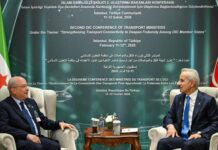
Turkish Foreign Minister Hakan Fidan made several notable statements yesterday, July 14 during a visit from Saudi Arabian Foreign Minister Faisal bin Farhan Al Saud, highlighting Turkey’s position on the ongoing Syrian crisis and the country’s stance on normalization with the Assad regime. Fidan emphasized Turkey’s “commitment” to the Syrian revolutionaries and discussed the complexity of finding a resolution to the Syrian conflict.
“We will not impose anything on the Syrian opposition. The Syrian opposition has its own decisions,” Fidan stated, reaffirming Turkey’s support for the opposition and the sacrifices they have shared. He clarified that Turkey’s refugee policy remains unchanged, asserting that no Syrian refugees will be sent back involuntarily.
He also called for a positive role from Iran and Russia in the negotiations and acknowledged the importance of Saudi Arabia’s role in resolving the Syrian issue. “We are waiting for our allies in Russia and Iran to play their role and exert pressure on Damascus,” he said while noting that Ankara is against all “terrorist organizations” operating in Syrian territory.
Fidan stressed that Turkey is not in a weak position regarding the Syrian crisis but seeks a solution due to the complicated realities on the ground. “The solution will take time, as the reality on the ground in Syria is very complicated,” he explained. He emphasized the need for both counter-terrorism efforts and addressing the refugee situation in the negotiations.
Meanwhile, efforts in the US to revive the anti-normalization law with the Assad regime continue, despite being blocked by President Biden after its approval by the House of Representatives. On July 10, the Helsinki Committee for Human Rights in the US Congress held a session titled “Putin’s Syrian Puppet: War Crimes and Collusion from Syria to Ukraine,” highlighting war crimes committed by the Assad regime.
The session, moderated by Congressman Joe Wilson, said of Turkish efforts, “I am deeply disappointed that President Erdogan of Turkey has publicly asked to meet war criminal Assad. Normalizing with war criminal Assad is normalizing with death itself.” Concluding that such overtures were among the reasons that “the Senate must act soon and pass the Assad Regime Anti Normalization Act.”
Director of the Syrian Emergency Task Force (SETF), Mouaz Moustafa argued that Assad’s continued rule, supported by Russia and Iran, prevents any meaningful democratic progress in Syria. He emphasized the necessity of passing the anti-normalization law to prevent further legitimization of Assad’s regime.
Congressional witness, Muhammad Ghanem, highlighted the session as part of broader efforts by the Syrian lobby in America to push for legislative action against normalization with Assad. He expressed the importance of the anti-normalization bill, noting its potential impact on American policy towards Syria. He suggested that the Biden administration’s reluctance to change its stance on Assad was due to the real effects such a law would entail.
The Syrian Lobby in America, consisting of civil society organizations, businessmen, and Syrian politicians with American citizenship, has been instrumental in pushing forward the anti-normalization agenda. They played a key role in introducing the anti-normalization law, which passed the House of Representatives by a significant majority but was later blocked by Biden.
The Biden administration has been accused of quietly working to relieve pressure on the Assad regime. This stance has led to concerns that European countries might follow Arab nations in normalizing relations with Assad, potentially undermining efforts to hold the regime accountable for its actions.
Despite official statements from the US State Department against normalization without progress towards a political solution, the American commitment to the Syrian file has waned recently due to other international priorities, including the war in Ukraine and Gaza.








